Those, like me, who have followed what has happened since 2011 with a mix of hope, horror, disappointment and confusion, will celebrate the good news of Assad’s regime collapsing. The returning home of so many people. The reunification of families and loved-ones. The release of political prisoners incarcerated for so long.
In Gaza the line between the oppressor and the oppressed is clear. But Syria has confused people. It is sad that so many people who have been unified in Gaza and Palestine find themselves not just differing but conflicting over Syria. Even what should not be contentious has been the cause for hostile interaction online.
Some have raised concerns about the involvement of Turkey, and so the hand of the United States, behind the scenes. There are concerns here that need acknowledging - which I will address later.
But that should not prevent us from adhering to some simple principles from our Deen to navigate what has happened and what is happening now:
We should support the people of Syria, who are victims in this terrible conflict.
We should celebrate the end of a tyrannical regime that is undoubtedly evil.
We should want a just Islamic alternative that unifies people, brings an end to conflict, AND brings an end to decades of external colonial interference.
We should not be stung from the same hole twice - so should be cautious about what comes next, because the dirty hands of external powers have manipulated the bloodshed for their own ends over many years - and even until now they have an agenda for Syria through this spectacular rebel surge this week.
Syria is a dear part of the Muslim Ummah. Being part of Bilād-al-Shām, the region and its people have been honoured according to narrations from the Messenger of Allah (صلى الله عليه و سلم) .
Bashar al Assad - Once the great hope of the west
It should be straightforward to understand that Bashar al Assad, like his father, has presided over a monstrous regime that has oppressed, killed, tortured and imprisoned people on an industrial scale. People have rightly been reminded of the Hama massacre of killing tens of thousands in a matter of days.
Some say that Bashar has been a bulwark against western imperialism in the regime. This is plainly nonsense. Aside from the fact that Baathism is socialism-in-name only (the regime’s leaders have lived like princes for decades), Bashar was warmly hosted in the west prior to 2011.
Hilary Clinton, as US Secretary of State in 2011 under the Obama regime, defended him as a ‘reformer’, when he was knee deep in blood at the time of the Arab spring.
Nancy Pelosi, for House Speaker in the US, visited him in Syria during the regime of George W Bush.
More recently, Bashar has been welcomed back into the fold by the “Arab Friends of America and Israel” - more commonly known as the Arab League - something almost impossible if it had not been sanctioned by the USA.
It is hard for anyone who has seen all of this over the years to believe that this regime was truly anti-western imperialism.
It should also be straightforward that Assad’s regime was the guilty party at the time of the Arab Spring.
The Arab Spring Peaceful Uprising
In January 2011, the Arab Spring started in Tunisia - with people fed up with the oppression of the post-colonial illegitimate regimes ruling over them. The slogan being shouted was “The people want a change in the system”.
In May 2011 a group of young boys painted this slogan on a wall in the Syrian city of Deraa. They were seized in typical Assadist style by the intelligence services. When the body of 13-year old Hamza al Khateeb was returned to his family mutilated with genital torture, cigarette burns over his body and bullet wounds, the people could take it no more.
It sparked peaceful protests across Syria despite the nightmare security situation. Assad’s response was more brutal repression, through the Shabiha - a loyal militia outfit that terrorised people in the way fascist regimes use. Back in 2011, I heard of a prominent Syrian activist whose uncle was seized by them, with his body returned beheaded.
What marked out the Syrian Arab Spring as different is that, unlike the other uprisings which were general protests against the regimes and wanting a just alternative, there was a consistent call in all the Syrian protests for that alternative to be based on Islam.
The regime escalated its repression, ready to launch Hama-like slaughter on the cities and towns that were most vocal in their peaceful protests. Yet they were stopped when whole brigades of the armed forces defected and fought to protect innocent life that time.
This is what led to a non-violent, vocal uprising against the regime morphing into a civil war. The popular opinion against Assad was so strong by this stage, that at that time I thought it was impossible for the regime to survive by using force alone.
However, things got dirtier. What follows is heavily contested, depending on how you view the next few years.
Civil war
The next phase was a mix of horror, hope and disappointment. The regime committed serious horrors, using chemical weapons. There was hope, insofar as the initial phase of the conflict saw the Assad regime on the backfoot. By 2013 areas of Damascus were under opposition control. Analysts predicted the regime might fall.
Critics of the resistance/rebellion against the regime said foreign influence was manifest in the forces opposing Assad - from Turkey, Saudi and the UAE, as well as ‘foreign fighters’.
External involvement
Once the conflict got underway and Assad’s regime looked vulnerable to external powers, under the auspices of the USA but brokered by regional players, who looked at finding a suitable candidate to lead the opposition to Assad, in the hope of brokering a ceasefire, or even looking at regime change. However, despite reaching out to ex-regime leaders who had defected - and ‘moderate Islamists’ that they felt were pliable - the principled stance of the people and the military brigades was that they would not compromise either on doing a deal with Assad, or on their Islamic vision for an alternative future.
Assad received help from two sources. Firstly from Iran, who saw Syria as a vital strategic asset that could not be lost to a hostile regime. Iran portrayed the opposition to Assad as hardcore ‘Wahabi’ fighters that would have slaughtered non-Sunnis. They mobilised their own ‘foreign fighters; from ‘Hezbollah’ and others to fight in Syria for the regime, as well as lending other support. Secondly, from Russia, whose intervention was to flatten whole towns ruthlessly, like they did in Chechnya. Had it not been for these two sources of support, Assad’s regime would not have survived so long.
The Disappointment: Inter-rebel conflicts
The rebel militia groups active in Syria emerged to defend innocent people from attack by the regime, which is why they captured so much support from Muslims around the world.
But as the years went by they also vied with each other for power. For some this was because different factions in the opposition stood for different goals. For some this was because of the corruption of peoples’ natures when involved in a power struggle. For some this was because the various different factions were backed by different regional powers who were interfering in Syria for dirty ends.
The depth of this matter was the emergence of ISIS, who not only betrayed Islam by falsely using the label of the Caliphate for their own interests, but spent more effort fighting other Muslims than they did Assad’s regime.
When territories came under the control of some of the factions, there were some cases where there had been oppression of some of the people they ruled over in the areas liberated from the regime.
I have no doubt that the majority of people have been fighting for something good.
And when they do something good, they deserve our good wishes and prayers. Those people are a hope for the people of Syria.
But let us not pretend that there are not elements that are a cause for concern - and that needs to be understood as the politics will move as fast as the military surge.
Causes for concern
The current gains against the regime have been spectacular.
But it is early days as yet.
People on the ground are fearful from retaliation - particularly from Russia by air. Thankfully that hasn’t happened yet - and in-sha’ Allah it will not happen. Some say that is because Russia is preoccupied with Ukraine. Whilst that may be true in terms of resourcing ground troops, it would not be beyond the scope of their engagement to revert to type with bombardment.
But there is another reason that has been suggested.
Russia and Turkey have been in talks over the months regarding Syria, looking for a rapprochement with Assad.
In August 2024, there was a three-way meeting between Turkey, Russia and Iran in the city of Saraqib in an ongoing effort looking for a political solution - including discussing opening and securing highways in Syria - with an attempt to normalise relations between the Assad regime and his opponents. Turkey has recruited some of the rebel factions into this plan. Indeed, in this regard Abu Muhammad Julani’s faction has been involved.
However, Assad could not deliver- with many of the militias fighting for him not willing to back down.
It is this background that is the context to this latest insurgency.
No military operation can be sustained without support and supply lines. It is well understood that the supplies to the rebel groups comes from Turkey, who - after doing nothing to help the people of Gaza, and betraying the people of Syria thirteen years ago, now see an opportunity to intervene.
So it is not without concern that one must note the support for the rebels that has come from Turkey, as well as the lack of support for the regime from its supporters to date … and consideration for what these dirty regimes have in mind for the future of Syria.
Whilst Turkey might have its own national objectives (refugees and the Kurdish groups hostile to Ankara), nothing it does in Syria can be seen outside of Washington’s agenda for the region.
So what are the external plans for Syria?
Ultimately, the United States wants a compliant Syria, that is less unstable for its interests - that will not threaten the Zionist occupation of Palestine.
How could this be achieved?
By dividing Syria into different parts? That is not a new idea but was spoken about in 2013 and more recently than that.
Any such division would certainly entail a fight over the resources - so would not necessarily mean an end to the conflict. It would also mean the Middle East would be even more Balkanised, with small, weak states all being ripe for manipulation by others.
Also possible, is that if the Assad regime is left without Russian or Iranian support, because they could not deliver on what was agreed in tripartite talks, it would collapse. Then might we expect that a Julani regime would assume power, with Turkey and the United States expecting it to be compliant to their external interests?
This makes even more concerning the positive presentation in the western media of Julani, who is supposed to have a bounty on his head and be the head of an organisation that is labelled as a terror group, is incongruous when one looks at how equivalent groups have been labelled in occupied Palestine.
Looking forward
I welcome the fall of the Assad regime and an end to conflict and insecurity for the people of Syria.
It is a moment of hope - and in-sha’Allah the plans of dirty colonial powers and their regional proxies will be subverted by the plans of Allah the Almighty, Most High.
But my caution to all is to watch for more dirty external games. A divided Syria or a new, western-compliant government in Damascus is not a liberation.
That would mean that after many years and many deaths, we would be returning to the types of solutions proposed in 2012 and 2013 - i.e. the original aims of the revolution would have been subverted.
Recently, I offered some advice to a brother I know: Never let political analysis be determined by your hopes and prayers.
Separate the two. Otherwise as harsh political realities emerge they will kill hope. Our hope should be in Allah alone. But our assessment of the political situation on the ground has to be informed by the events of the past few years - and even more recent discussions between the main players.
So remain optimistic. Look for the best in the people. But beware the dirty hand of those who have played with the lives of thousands over the decades - and hope we do not see more like those who have betrayed Allah, His Messenger and the Ummah in the past.
In that respect, we need an Ummah that is aware and willing to advise and account for their leaders where they see potential dangers - not just to follow them blindly.
O Allah! We ask you defeat the tyrant regime of Bashar al Assad, that you subvert the plans of those who have designs on Syria, that you guide the people there to what pleases you alone, that it becomes the nucleus of the restoration of the Islamic Khilafah and a beacon of light and goodness for the world. Ameen
Abdul Wahid has been active in Muslim affairs in the UK for over 25 years. He has been published on the websites of Foreign Policy, Open Democracy, the Times Higher Educational Supplement, and Prospect Magazine. You can follow him on X/Twitter @AbdulWahid_X.





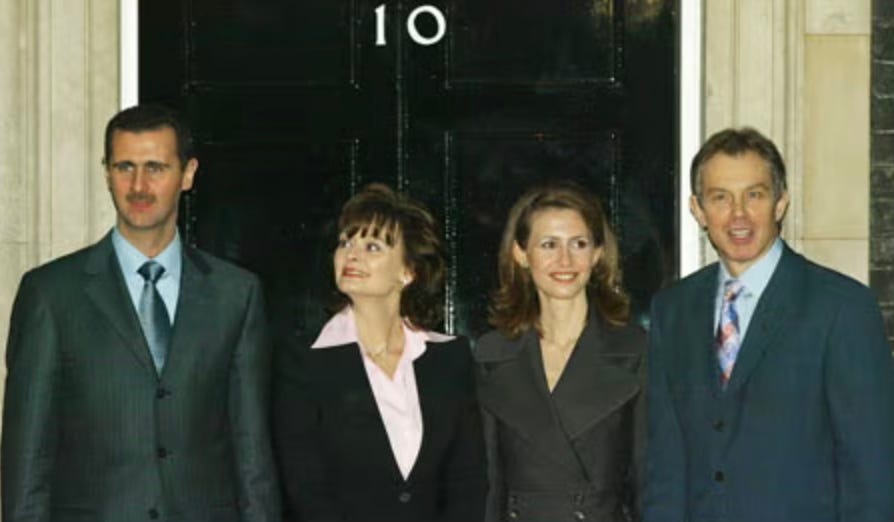
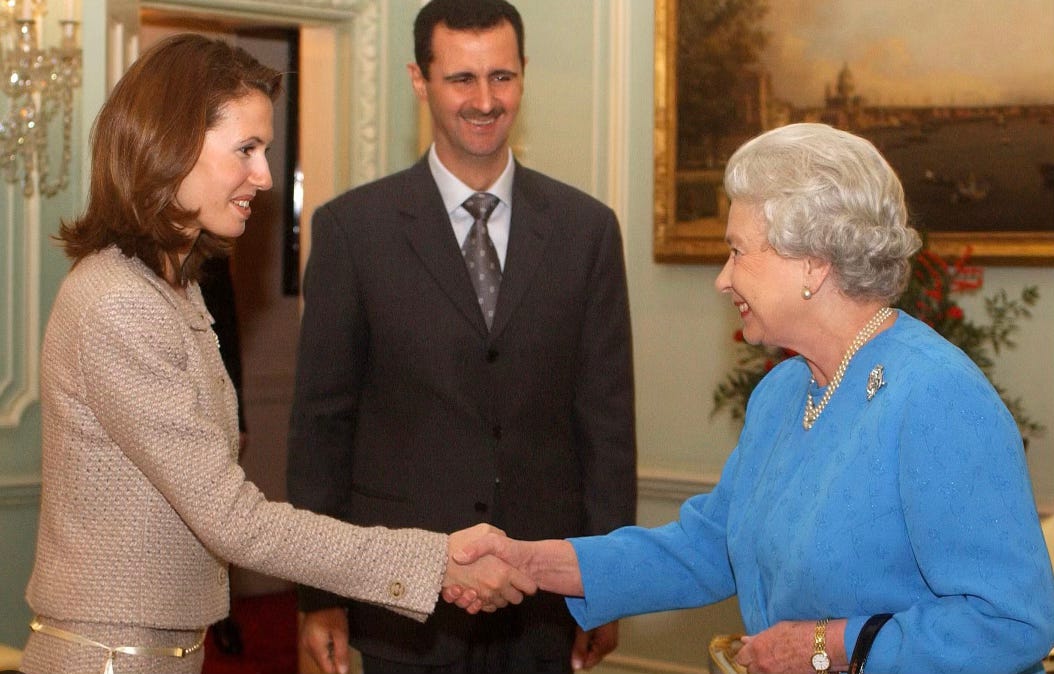
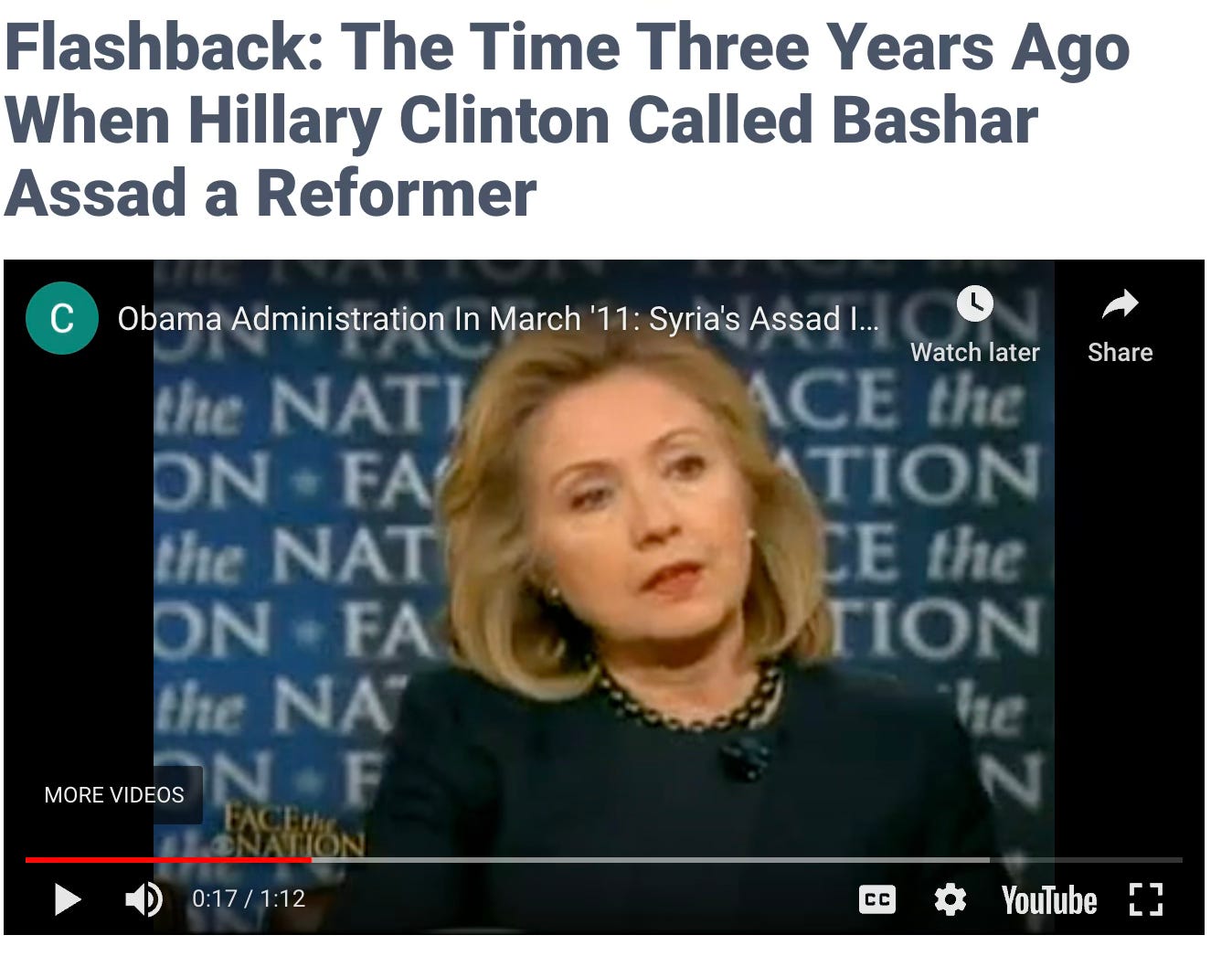
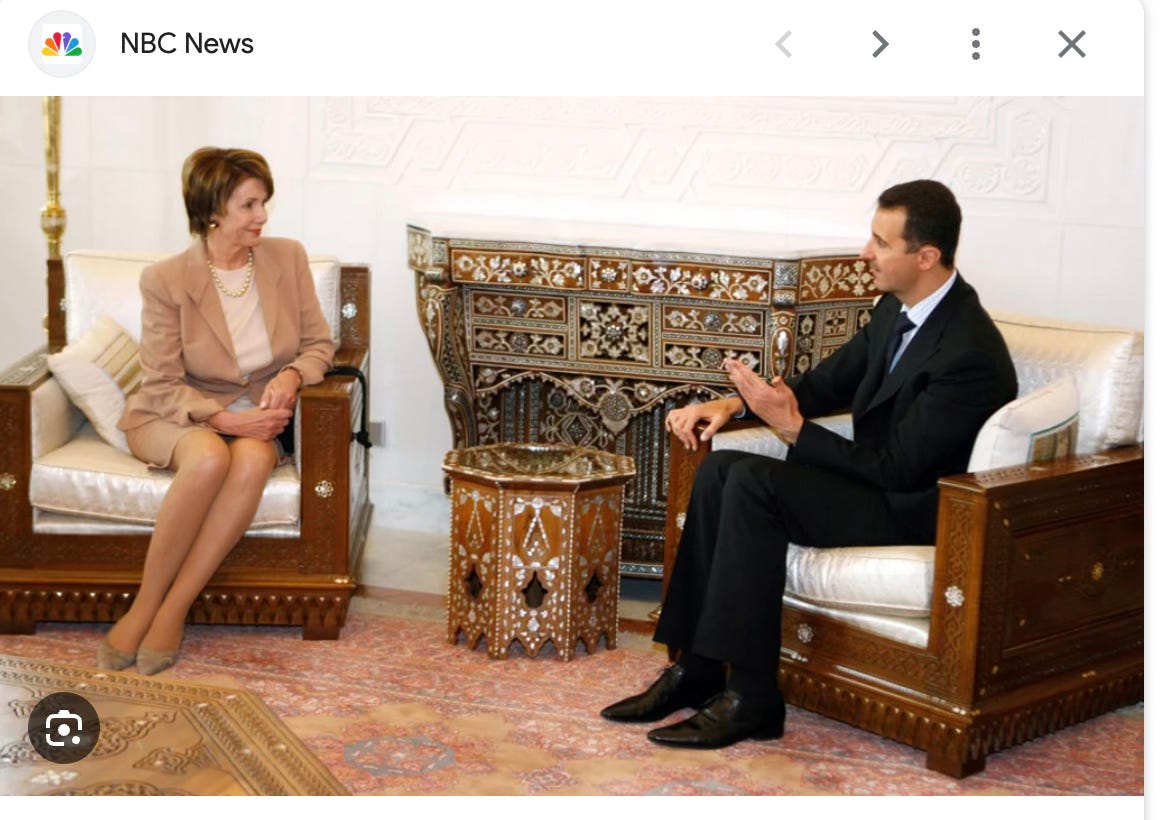
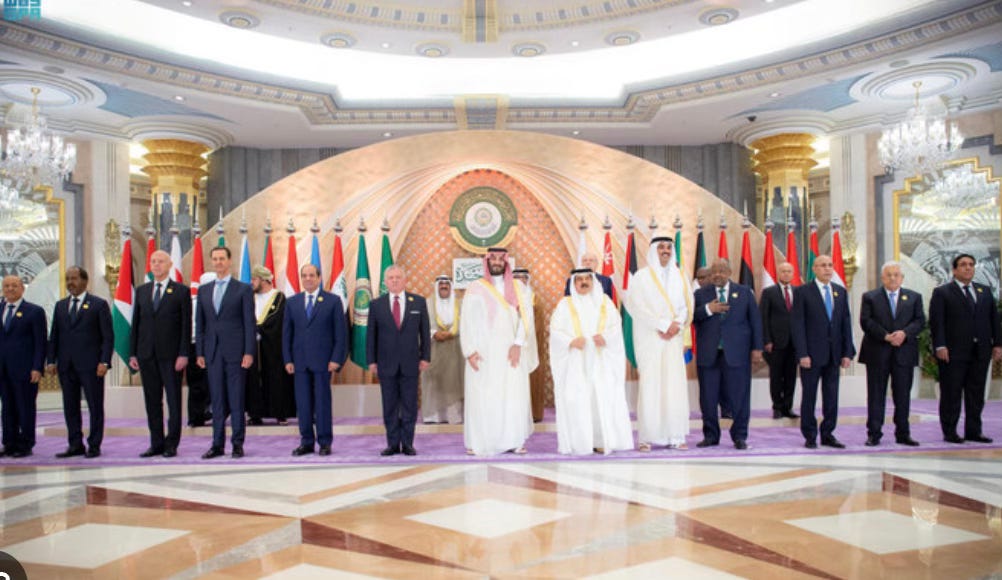
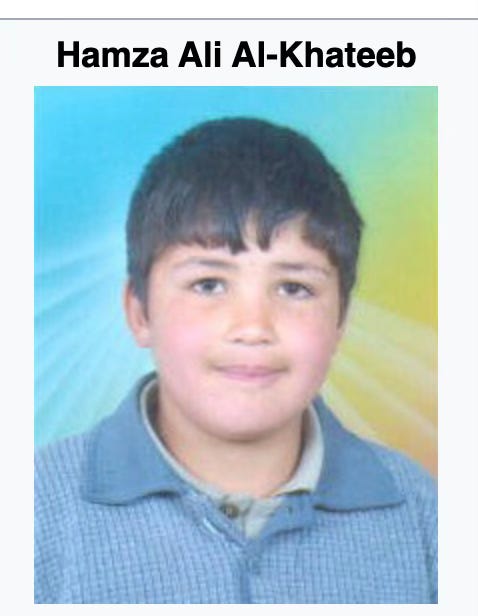
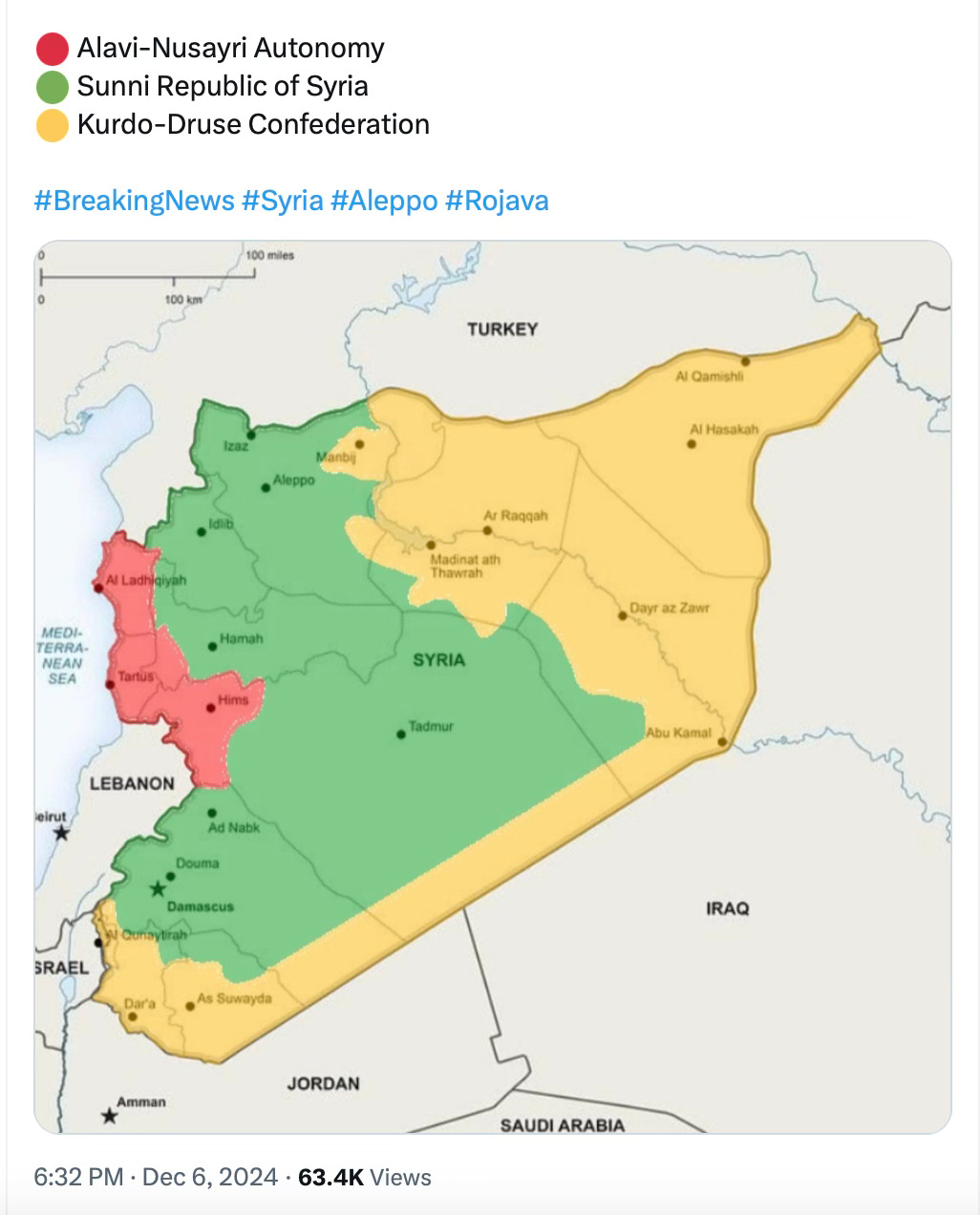
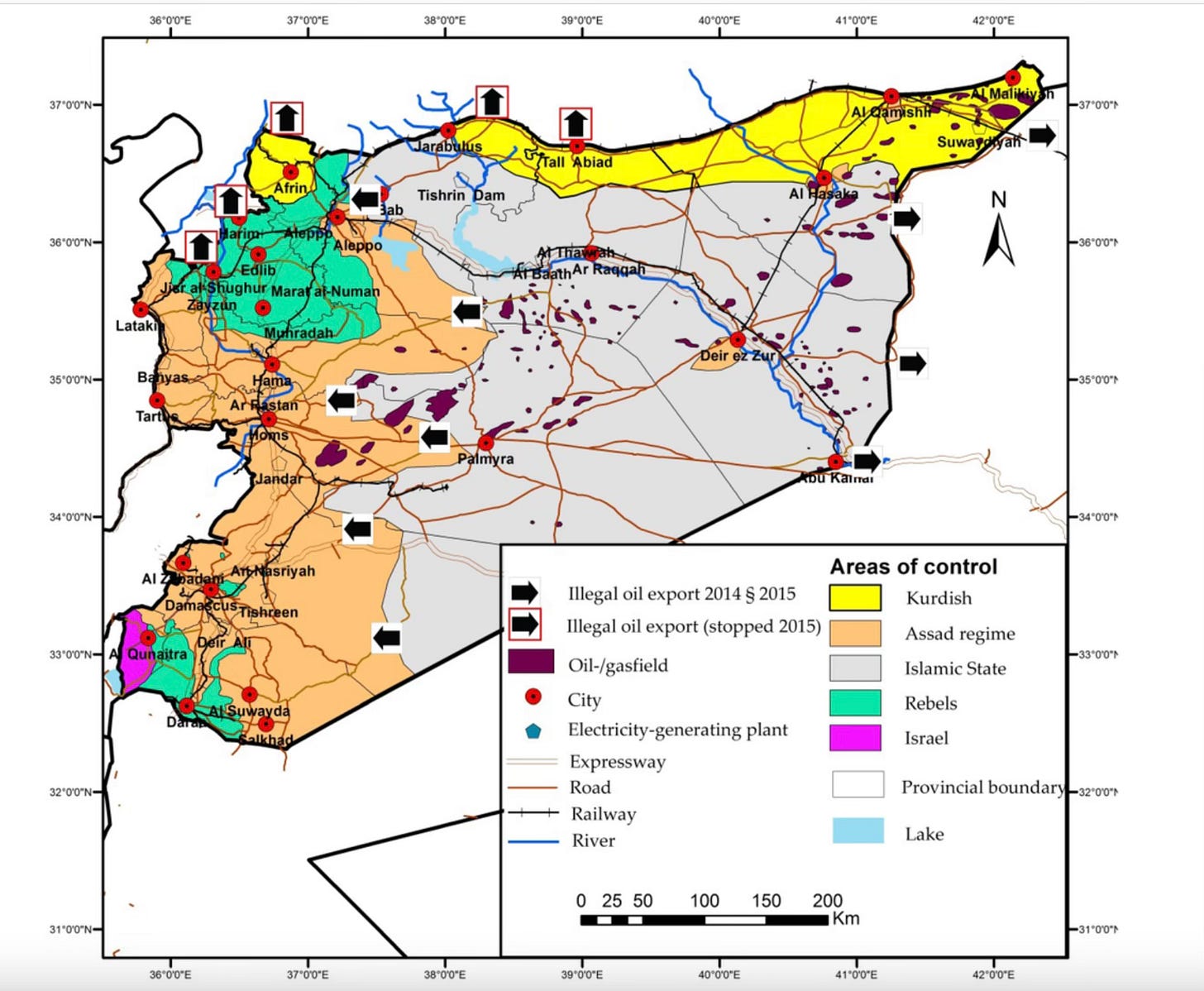


Excellent article and refresher of the crisis. Clear perspective. Jazaakumullahu Khairan
Salam bhai Abdul and Jzk for your insights to which I wholeheartedly agree and support May Allah SWT guide us all